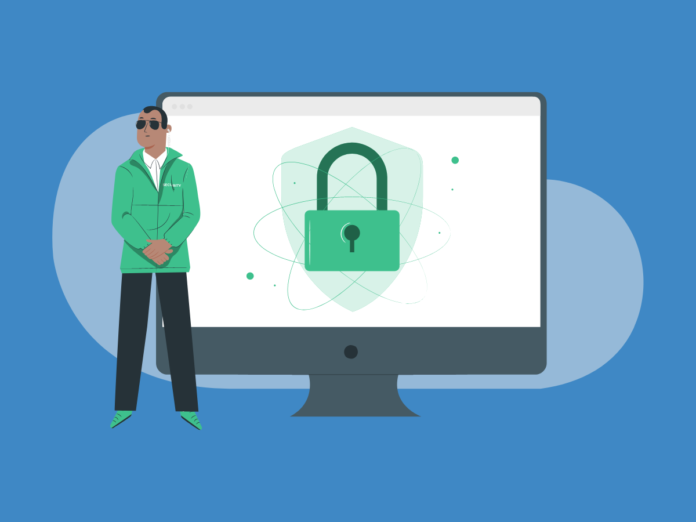The internet has become an integral part of our lives, and so has online security. With cyber-attacks on the rise, securing your website has become more crucial than ever. According to Check Point, global cyberattacks increased by 38% in 2022, compared to 2021. SSL Certificates are an essential tool that provides online security, enabling a safe and trustworthy environment for businesses and their customers. In this article, we’ll explain what SSL Certificates are and why they are important for your website’s security.
Table of Contents
What Are SSL Certificates?
SSL stands for Secure Sockets Layer, which is a security protocol that encrypts data transmitted between a website and its users. SSL Certificates are small data files that digitally bind a cryptographic key to a website’s details, enabling secure connections between the user’s browser and the website’s server. The certificate provides a secure and encrypted connection that protects sensitive information such as login credentials, personal information, and credit card details from unauthorised access by hackers.
What Is HTTPS? Browser and Server Encryption
SSL Certificates are essential components of HTTPS, which stands for Hypertext Transfer Protocol Secure. HTTPS is an extension of the standard HTTP protocol used for web communication, with the added security of SSL/TLS encryption. HTTPS ensures that all data exchanged between the user’s browser and the website’s server is encrypted and secure. When a user visits a website that uses HTTPS, their browser first verifies that the SSL certificate presented by the website is valid and issued by a trusted authority. Once the certificate is verified, the browser and the website’s server negotiate a secure SSL/TLS encrypted connection.
How Does an SSL Certificate Work?
When a user visits a website with an SSL Certificate installed, their browser establishes a secure connection with the website’s server using the SSL/TLS protocol. This connection encrypts all data transmitted between the user’s browser and the website’s server, ensuring that the data is secure and private. This process is known as an SSL handshake. The certificate confirms the website’s identity, ensuring that the user is communicating with the intended website and not a fake website designed to steal their information.
The certificate confirms the website’s identity, ensuring that the user is communicating with the intended website and not a fake website designed to steal their information
In addition to providing encryption, SSL also provides authentication. When a website owner obtains an SSL Certificate, it is issued by a trusted Certificate Authority (CA) that verifies identities. The certificate contains information about the web owner, including the owner’s name, address, and domain. Learn more about domain names. The certificate also contains the public key needed to establish a secure connection.
Different Types of SSL Certificates
There are several types of certificates available, each providing different levels of security and validation. Domain Validated (DV) certificates are the most basic type of certificate that only validates the domain name. Organisation Validated (OV) certificates provide a higher level of security by validating the domain and the organisation’s legal existence. Extended Validation (EV) certificates provide the highest level of security by validating the domain, organisation, and legal existence of the organisation. Research done by CyFI lab concluded that the presence of an Extended Validation (EV) SSL certificate represents a 99.987% likelihood that the site it represents is not associated with common forms of online crime.
In addition to these SSL certificates, there are also wildcard SSL certificates, which can be used to secure multiple subdomains of a single domain, and multi-domain SSL certificates, which can be used to secure multiple domains with a single SSL Certificate.
Do I Need an SSL Certificate?
An SSL Certificate has become a necessity for any website that handles sensitive information, such as login credentials, personal information, or credit card details. A certificate protects your website’s visitors and ensures their data is secure and private. Additionally, Google has stated that installing a certificate on your website can boost your search engine rankings, making it more visible to potential customers. According to a study by Search Engine Journal, SSL certificates are a ranking factor in Google’s search algorithm
An SSL Certificate has become a necessity for any website that handles sensitive information, such as login credentials, personal information, or credit card details
SSL Certificates are an important part of website security. Without an SSL Certificate, any data transmitted between the visitor’s browser and the website’s server is vulnerable to interception by third parties. In addition, web browsers now display warnings for websites that do not have a certificate, which can harm a website’s credibility and lead to a decrease in traffic. It is essential for site owners to obtain an SSL Certificate to ensure the security and trustworthiness of their websites.
How To Get an SSL Certificate
SSL Certificates can be obtained from a reputable certificate organisation, which is an entity that verifies the identity of the website owner and issues the certificate. There are several trusted organisations that offer SSL certificates, many hosting providers offer SSL certificates as part of their hosting plans. Depending on your website’s needs, you can choose from a variety of SSL Certificates, including DV, OV and EV certificates.
Before getting a certificate, it is important to have a registered domain. If you haven’t registered one yet, you can refer to our article on How to Register a .co.za Domain Name: Simplified for Beginners to learn more about the domain registration process.
Domain validation is an important part of the SSL certificate process. To validate your domain, you can use our Whois Lookup Tool, which allows you to search for domain ownership information. Refer to our article on finding out who owns a domain with Whois lookup to learn more about how the tool works
When Does an SSL Certificate Expire?
SSL Certificates have an expiration date, after which they need to be renewed. The duration of a certificate depends on the type of certificate and the authority that issued it. Typically, SSL Certificates have a validity period of 12-13 months. It’s essential to renew your certificate before it expires to ensure uninterrupted security for your website’s users.
Certificate Management
Once you have an SSL certificate, it is important to manage it properly. Certificate management involves keeping track of when your certificate is set to expire, renewing it before it expires, and updating it if there are any changes to your website’s domain or other relevant information.
At MCloud9, we offer free SSL with all of our hosting plans, making it easy for our customers to install and manage their certificates. Our certificates are recognised by all major web browsers.
How To Get a Free SSL Certificate

To obtain a free SSL certificate from MCloud9, all you need to do is sign up for one of our hosting plans. Once your website is up and running, we can assist in automatically installing the certificate for you, ensuring that your website is secure and trustworthy.
Certificate Signing Request (CSR)
A Certificate Signing Request (CSR) is a message that is sent to a certificate authority to request a digital certificate. The CSR contains information about the website’s name and other relevant information, which the authority uses to verify the identity of the website owner before issuing the certificate.
At MCloud9, we take care of the CSR process for you, ensuring that your certificate is properly authenticated and verified.
How To Tell if a Site Has an SSL Certificate
You can easily tell if a website has an SSL certificate by looking for a padlock icon in the address bar of your web browser. The padlock indicates that the website is using HTTPS encryption, which is a secure protocol that protects confidential information, such as credit card information and login credentials, from being intercepted by hackers.
FAQ for SSL Certificates
Here are some frequently asked questions about SSL certificates:
What are SSL certificates?
They are digital certificates that are used to establish a secure and encrypted connection between a web server and a browser.
Why are SSL certificates important?
They are important because they help to protect delicate information, such as credit card numbers and login credentials, from being intercepted by hackers.
How do SSL certificates work?
They work by encrypting data that is transmitted between a web server and a browser, making it difficult for hackers to intercept and decode the data.
How long do SSL certificates last?
They typically last for 12-13 months, after which they need to be renewed.
What is an EV certificate?
An Extended Validation (EV) certificate that provides the highest level of authentication and verification. Websites with this certificate display a green address bar in browsers, indicating that they are highly trusted and secure.
What is a private key?
A private key is a cryptographic key that is used to encrypt and decrypt information that is sent between a server and a browser.
In Conclusion
In summary, SSL certificates play a critical role in establishing a secure and encrypted connection between a web server and a user’s browser. The certificate is a digital document that verifies the identity of the web host and allows for the establishment of an SSL connection using the SSL protocol. SSL encryption protects sensitive information, such as credit card numbers and login credentials, from being intercepted by hackers. There are different types of SSL certificates available, including domain validation certificates, multi-domain certificates, and extended validation SSL certificates. Choosing the right certificate depends on your website’s needs.
Adding an SSL certificate onto your website is an important part of securing your website and establishing trust with your visitors. SSL providers issue certificates with different levels of validation, and a root certificate verifies that the SSL provider is trusted. Whether you buy an SSL certificate or use a free SSL certificate provided by your web host, make sure that the certificate is valid and that it offers the highest level of SSL encryption available.
At MCloud9, we offer free SSL certificates with all of our hosting plans, making it easy for our customers to obtain and manage their certificates. So why wait? Sign up for a hosting plan with MCloud9 today and get your free SSL certificate!


